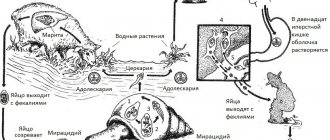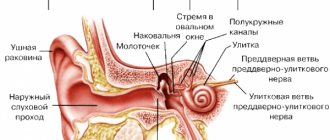Cystitis is an inflammation of the bladder. Both women and men suffer from this disease. It can be an independent disease or a complication of an ongoing illness. For example, in men, cystitis manifests itself as a consequence of prostatitis and sexually transmitted infections.
Most cases of cystitis have a blurred clinical picture and low severity of symptoms, which can last a long time. To get rid of this disease, you need to see a doctor to undergo an examination and prescribe the correct treatment. Treatment of cystitis with folk remedies will help you quickly and forever get rid of this unpleasant disease.
Symptoms of cystitis
Cystitis can occur in two forms - acute and chronic. In the first case, the disease begins abruptly, suddenly.
The first sign of cystitis is an increase in body temperature and pain in the lower abdomen. There is pain when urinating.
There may be some blood in the urine.
The genitals begin to itch and a burning sensation appears. In advanced cases, urinary incontinence is noted.
Decoctions
In addition to the decoction, you can prepare and drink many other things from bearberry leaves, and not only in the bathhouse. List of medicinal plants for decoctions for cystitis:
- Horsetail;
- Cowberry;
- Calamus root;
- St. John's wort;
- Dill.;
- knotweed;
- Thyme;
- Rose hip;
- Corn silk;
- Chamomile;
- Centaury;
- Birch buds.
All decoctions are prepared in the same way:
- approximately 50-80 grams of dried plant are poured with boiling water (500-800) milliliters;
- Simmer for another 15-20 minutes over low heat.
They should be taken three to four times a day, one glass. It is advisable to combine this drink with baths.
How to treat cystitis at home?
You can treat cystitis at home not only with traditional medicines, but also with folk remedies. The best way to get rid of the disease is to use both methods of treatment.
Important! Before starting any treatment, you must consult a urologist. He will select treatment and help cope with the disease.
Different types of cystitis require different treatments. Some need to use antibiotics, while others need to treat the underlying disease that led to the development of cystitis.
What symptoms are a signal of disease?
The first warning signs in women are a frequent urge to urinate. The desire to go to the toilet may appear every 15 minutes, and the process of urination itself is very painful. Sometimes blood can be found in the urine. Body temperature may increase. Symptoms such as vomiting and cloudy urine are not symptoms of cystitis. If these symptoms appear, you should consult a doctor as soon as possible to confirm the diagnosis and prescribe the correct treatment.
The chronic form of the disease can also be expressed by the following symptoms:
- discomfort, feeling of heaviness, aching pain in the lower abdomen;
- disruptions of the menstrual cycle;
- headache;
- pain in the urethral area.
How to treat cystitis with folk remedies?
Our ancestors coped well with the treatment of cystitis with folk remedies. How is cystitis treated with folk remedies?
For this purpose, decoctions and infusions of dill, parsley, chamomile and other plants are used.
So how to cure cystitis with folk remedies? First of all, you should consult with a urologist, who will determine the extent of the disease and help you choose the most effective treatment method.
Traditional medicine for cystitis - dill
Dill is not only a spice, but an excellent traditional medicine for cystitis. The seeds of the plant are used for treatment.
A decoction is prepared from them, which helps relieve inflammation of the bladder, reduces pain, and also disinfects.
To treat cystitis with folk remedies, there are several recipe options.
- Dill infusion. Take a spoonful of dill seeds and crush them. Then the resulting raw material is poured into a glass of water and infused for about three degrees. The finished infusion is taken half a glass twice a day. If cystitis is not advanced, then you can take the medicine once a day.
- You can make a decoction from dill. To prepare the decoction, dill seeds are also taken at the rate of a spoonful per glass of water. They are placed in a saucepan, filled with water and boiled for ten minutes in a water bath. Take half a glass of decoction three times a day. If cystitis is advanced, then the remedy is taken up to six times a day. The course of treatment for cystitis with dill lasts no more than ten days.
Millet for cystitis
Millet is a unique product from which you can prepare not only delicious porridges, but also an excellent remedy for cystitis. You can make not only a decoction from it, but also several options for infusions.
- Half of the millet is poured into a three-liter jar, then boiling water is poured right up to the throat. Everything is mixed well. The jar is covered with a blanket. The infusion is prepared for 24 hours, after which the product must be strained. Take half a glass twice a day. This recipe is good because the infusion continues until the drug runs out.
- As a folk treatment for cystitis, you can use another version of millet infusion. To prepare it, you need half a glass of millet, which is steamed with a glass of boiling water. This product should sit for twenty minutes. As soon as the millet swells, it is ground to a porridge-like mass, due to which the solution acquires a white-yellow tint. Let it sit for another day. After this, the drug is taken half a glass twice a day - the course of treatment is fifteen days.
- A decoction of millet has proven itself quite well. To prepare it, take millet and water; two tablespoons of millet are needed for two glasses of water. Millet is poured with boiling water, then put on fire and cooked for about five minutes. The liquid is drained from the resulting decoction, and the lower thick part is used to treat cystitis. Take the product on the first day, one spoon ten times a day. Then the intake is increased by one spoon, bringing it to half a glass at a time. The course of treatment is two weeks.
Using chamomile for cystitis
The richest substance in composition is considered to be chamomile. It has many different properties: disinfects, relieves inflammation, relieves pain.
It is used to treat various pathologies, including the treatment of cystitis with folk remedies.
From chamomile you can prepare infusions, decoctions, and make baths with it.
To prepare the infusion, take a spoonful of chamomile and add a glass of water. The product is infused for twenty minutes, after which it is strained. Apply a third of a glass of chamomile three times a day. It is best to do this while eating.
To treat cystitis, you can take baths with chamomile infusion. To prepare it, take two spoons of raw materials and pour a glass of boiling water. The product is infused for twenty minutes, after which it is strained and added to a bowl of warm water. Sitz baths are performed in this solution, lasting at least thirty minutes.
To relieve itching and burning of the genitals, it is recommended to wash with chamomile infusion. To prepare the solution, take a liter of boiling water and three tablespoons of chamomile. The solution must be allowed to stand for about half an hour, after which it is strained and used for washing.
Using parsley for cystitis
Parsley, like dill, perfectly helps cope with cystitis. To prepare the medicine, you need to take a tablespoon of parsley, add a sprig of celandine and a few calendula flowers. The raw material is poured into a glass of water and boiled for ten minutes. The finished broth is strained and taken in a third of a glass twice a day.
You can use other traditional methods of treating cystitis. To do this, take a spoonful of parsley and pour two glasses of water. The solution is infused overnight. The finished product is divided into six doses, which are drunk per day.
Parsley seeds have proven themselves to be excellent. To prepare medicine from them, take a spoonful of seeds and pour two glasses of water. The product is infused for one night, after which the entire volume is divided into six doses, which are drunk in one day.
Our ancestors not only made decoctions and infusions from parsley, but also consumed its seeds fresh. To treat cystitis, you can eat a few parsley seeds three times a day.
Other folk remedies for cystitis
- St. John's wort. To treat cystitis, you can use St. John's wort. To prepare a decoction, take a spoonful of herbs and add a liter of water. Boil the product for ten minutes. After cooling, the solution is taken a quarter glass three times a day. This remedy helps relieve inflammation of the bladder, reduces pain, and makes urination easier.
- Bearberry. A decoction is made from this plant to treat cystitis using folk remedies. To prepare it, you need to take a spoonful of bearberry, pour a glass of boiling water and boil in a water bath for at least twenty minutes. After cooling, the decoction is taken one spoonful six times a day. It is most effective to take the drug half an hour after eating.
There are other folk remedies for cystitis. Each of them has its own property. When choosing any of the methods, you should take into account the characteristics of the organism, because each organism is individual and the use of the same remedy will not suit two people.
To find out which methods are suitable in your case, you should consult a urologist. Only he will help determine the method and prescribe the correct course of treatment.
Effective treatment methods
A large number of people try to treat the disease at home, but we must remember that its treatment should be carried out under medical supervision. In case of timely treatment, it will be easier and faster to treat, and the measures taken will be more effective.
If symptoms of fever appear, the patient should be provided with bed rest in quiet conditions. The feet should be dipped in a warm bath (the water temperature should reach 32-35 ° C), and folk recipes recommend placing a warm compress of boiled potatoes on the lower abdomen. It is also necessary to observe an appropriate diet, the diet of which should include dairy and plant foods, and a large amount of warm liquid. Another condition is the complete exclusion of spices and alcohol.
If you have constipation, it is prohibited to take strong laxatives; instead, against constipation, you should use home remedies, use:
- prunes;
- sour or fresh milk;
- serum;
- baked apples;
- carrot juice;
- decoction of flax seeds.
Antibacterial agents are prescribed, including those that have the ability to restore urodynamics, as well as rinsing the bladder with furatsilin. But when treating women, it is also necessary to promote the development of normal microflora in the vagina. Among physical procedures, a course of UHF therapy is recommended.
Prevention using traditional methods
In addition to the fact that you should avoid hypothermia, stagnation of urine and tight underwear, you need to regularly drink a certain amount of liquid within 2 liters per day.
The famous cranberry is an amazing therapeutic and preventive remedy. The juices from it have an excellent acidifying effect, due to which all harmful bacteria are unable to reproduce and develop inside the urinary system.
You also need to follow a diet that excludes spicy, fried, salty and other irritating foods.
Features of treatment for men
Typically, cystitis occurs in men as a secondary disease, for example, as a complication of prostatitis, the outflow of urine is disrupted and microbes spread.
For cystitis, men need to visit a urologist
Men need to visit a urologist. He does tests:
- Urine culture for bacteria, which will identify the pathogen.
- A smear that will detect hidden infections - STIs
- General urine test - it can show a high content of red blood cells, white blood cells, and mucus. If it is discovered that the urine is acidic, the doctor begins to suspect tuberculosis.
- Ultrasound of the kidneys and prostate to understand the cause of cystitis.
Delayed menstruation during menopause: signs and etiology
If cystitis is chronic, then a cystoscopy is performed, which shows kidney stones, foreign bodies, various neoplasms, and a biopsy is also performed during this study. Cystourethrography and uroflowmetry are performed to confirm or exclude organic obstruction.
In case of this disease, it is necessary to lie in bed during the acute period, take antipyretic medications, drink water up to 2.5 liters per day, follow a diet, and do not eat spicy, sour, or salty foods.
Antibiotics are prescribed - fluoroquinolones (Tsiprolet A, Nolitsin, Tsifran, Normax), nitrofurans (Furagin, Furazolidone, Furadonin, Furazolin), cephalosporins (Ceforal, Pancef, Solutab, Suprax), they are taken for 7 days.
It is recommended to drink herbal teas - tea from bearberry, lingonberry leaf, horsetail. They take herbal medications - Canephron, Cyston, Fitolysin. They eat cranberries, drink cranberry juice, fruit drinks, and Monurel tablets. To relieve pain, Nimesil, No-Shpu, Diclofenac, Papaverine are prescribed.
It happens that the doctor prescribes rinsing the bladder with antiseptics.
After finishing taking the medications, magnetic laser therapy, electrophoresis, ultrasound, UHF, and mud therapy are prescribed.
Life of women with chronic cystitis
In case of chronic cystitis, in order to prevent exacerbation of the disease, a woman needs to adhere to simple rules:
- You must constantly see a doctor.
- It is imperative to observe the rules of personal hygiene.
- Hypothermia of the body is unacceptable.
- It is necessary to eat as little fried, spicy, pickled and pickled foods as possible, as well as alcohol.
- We should try to avoid constipation.
- The daily fluid intake is at least 2 liters.
- Tampons should not be used during menstruation.
The listed home treatment methods can be effective if used in combination with drug therapy. A woman should not self-medicate. You need to see a doctor so that, after passing the appropriate tests, you can undergo the necessary treatment.
Causes and treatment of frequent cystitis in womenRecipes from bearberry in the treatment of cystitis Causes, diagnosis and treatment of herpetic cystitis Causes and treatment of discharge during cystitis
Causes of cystitis
Fungi, bacteria or viruses can enter in various ways, as mentioned above. And the causes are different, depending on predisposing factors:
- General hypothermia of the body
- Local hypothermia of the pelvic organs
- Decreased immunity
- Lack of vitamins in the body
- Promiscuous intimate relationships
- Violation of hygiene rules
- Hormonal changes: pregnancy and menopause
- Incomplete emptying of the bladder due to congestion in the pelvic area
Often, women come to the doctor after Sunday walks in nature: sitting on the cold ground, swimming in cold water, skiing in severe frost, trips out of town in light clothes that are not suitable for the weather. Often, everyday clothing in winter is so light that it’s hard to call it winter clothing:
- Short skirt
- thin tights
- thong
In combination with a light short coat or fur coat, under which the frosty wind blows, such clothing will be a provoking factor not only for acute, but also for chronic forms of the disease.
The need to use classical means
Before you try to cure cystitis permanently with folk remedies, you need to consult a doctor. Most likely, the specialist will recommend combining natural methods with traditional ones. If you do everything correctly, you can achieve impressive results in about one year. Many women are skeptical about taking aggressive antibacterial drugs unless clearly necessary. To make sure that the body really needs it, you will have to undergo tests that will confirm the presence of a hidden inflammatory process in it.
The treatment regimen with antimicrobial agents and their list is established by the urologist. Most often, one of two effective approaches is used. In the first case, a woman has to take the chosen remedy in minimal doses for a long time - 4-6 months. In the second, the same minimum doses are taken in short-term therapeutic courses, but 4-6 times a year.
What should women eat with cystitis?
The first thing you can do on your own is to review your diet, eliminating or maximally limiting the consumption of foods that can be harmful to the body.
It is necessary to limit the consumption of hot, spicy, salty and fried foods, alcohol and coffee as much as possible. Citrus fruits should also be eaten as little as possible. Meat and fish can only be consumed boiled, but rich broths from these products will have to be excluded.
Women's daily menu should contain plant foods: parsley, dill, asparagus, celery, lingonberries, cranberries. Baked potatoes, carrots, cabbage, cucumbers, melon, watermelon, dairy products (especially fermented milk), and vegetable oils are useful.
When cystitis occurs, treatment with folk remedies also includes measures to cleanse the body. From time to time it is recommended to arrange fasting days on watermelon, pumpkin or melon. This is beneficial for the urinary system and the body as a whole.
To cleanse the kidneys, bladder, and urinary tract, you need to drink at least 2 liters of mineral water or herbal infusions daily.












